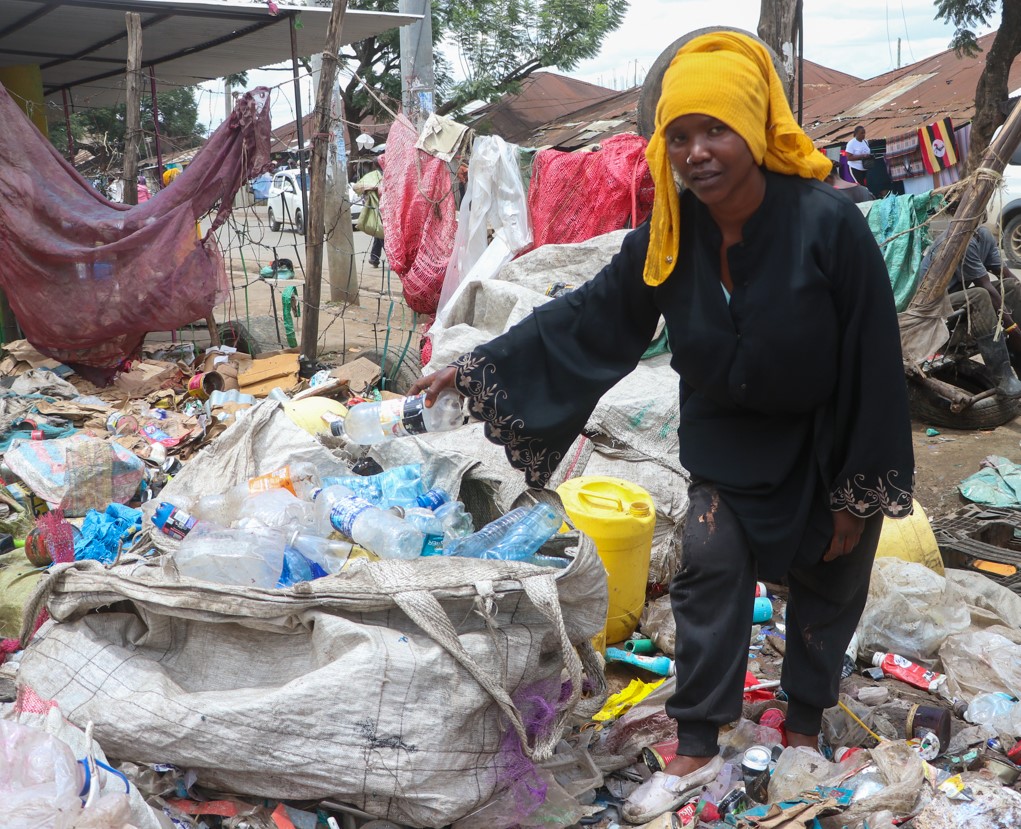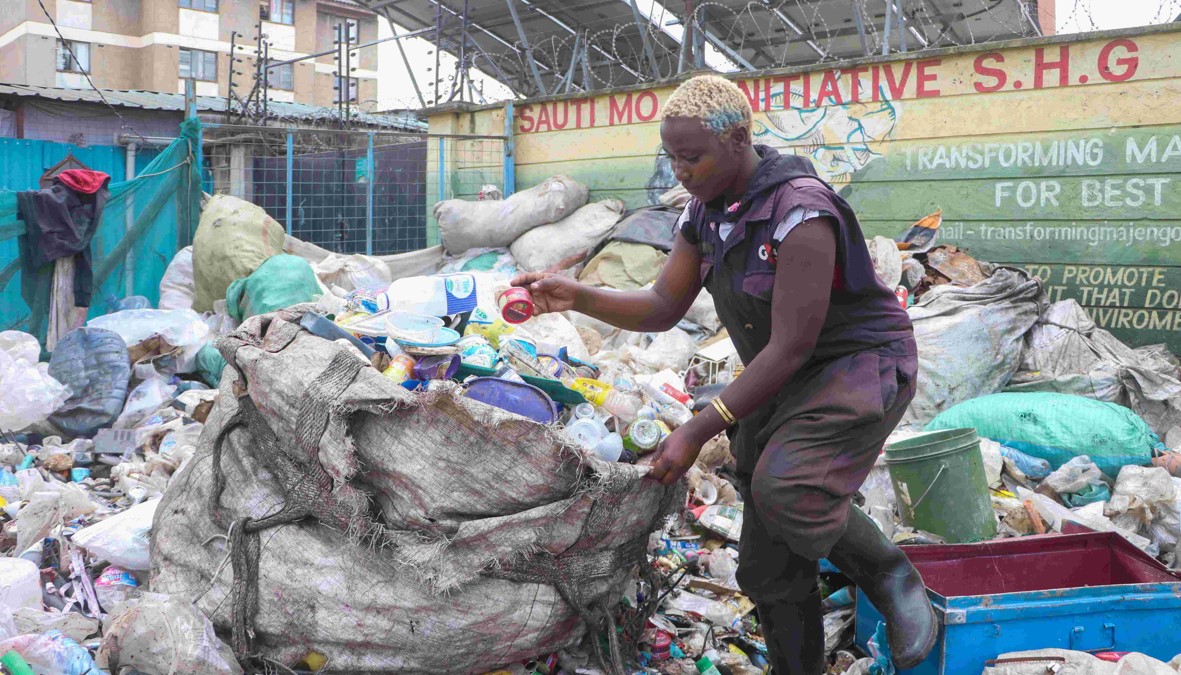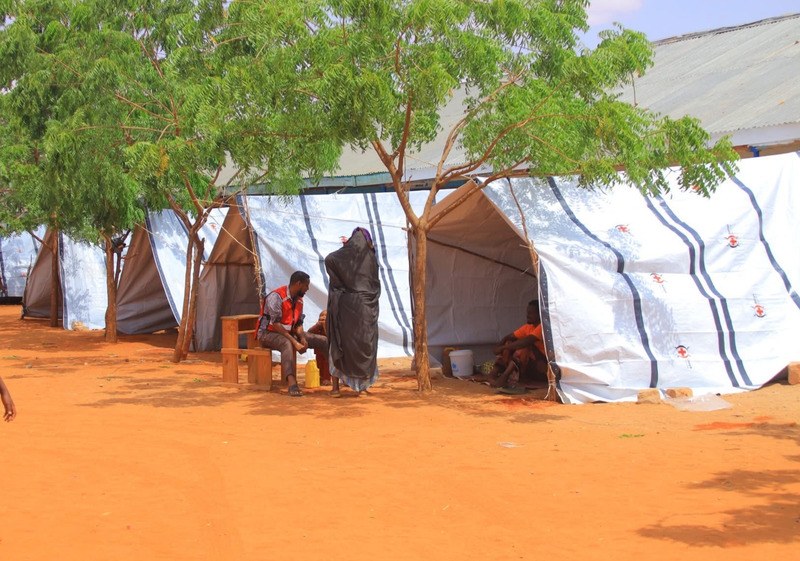Beyond the dump: Kenyan women find opportunities, hope in waste collection

Amid their challenging circumstances, these women have found a sense of purpose and pride in their work and have turned trash into treasure, transforming their lives and the lives of their families in the process.
Under the scorching sun, their bent backs tell a tale of resilience as they sift through piles of trash with their bare hands.
Their gaze remains fixed on a singular goal: making ends meet.
More To Read
- Thousands join plastic pollution fight as Diani Beach festival kicks off in Kwale
- Nairobi leads in plastic waste despite single-use papers ban as report shows alarming pollution levels
- Ethiopian parliament passes Bill banning single-use plastic bags
- Lamu youths turn Lake Kenyatta into party venue, leave it littered with trash
- Nairobi's CBD businesses ordered to subscribe to licensed waste collectors or face penalties
- Countries fail to reach agreement in UN plastic talks
Stranded with children and lacking a stable income, many women find themselves facing this daunting reality, especially those residing in low-income areas.
While some bemoan their circumstances, others have chosen to embrace unconventional jobs, ones that were previously deemed unsuitable for women.
Kerline Banda, a 28-year-old single mother of three from Majengo, took a brave step into the world of waste collection after enduring a prolonged period of unemployment.
"I had no idea that there was so much value in collecting trash. My life has changed so much since then; now I can put food on the table and send my children to school," she shares, her face glowing with pride.
Starting with picking up plastic along the roadsides, Banda eventually secured a more stable job at a collection site. "Nowadays, I don't have to beg anyone for food like I used to. I can do it myself, and there's no greater feeling than knowing my children will be provided for."
On average, these determined women earn between Sh400 and Sh500 a day from their sorting work. Banda urges other women and girls to consider any job that is legal and can sustain their families.
"Embrace any job, as long as it is legal and can sustain your family," she pleads.
Easther Mutheu, a 21-year-old resident of Majengo, joined the site three weeks ago, persuaded by a friend. "I never thought I could do this kind of work, but I've accepted it. It just requires perseverance. It's not a bad job because it provides. I was at home, jobless for two months, and this job has changed my life," she says, her eyes bright with newfound hope.
 Esther Mutheu, a worker from the Sauti Moja initiative on April 17, 2024. (Photo: Justine Ondieki/EV)
Esther Mutheu, a worker from the Sauti Moja initiative on April 17, 2024. (Photo: Justine Ondieki/EV)
Stigma
Mutheu acknowledges the stigma attached to their work, with others looking down on them. "Some of my friends ask me why I chose to work in trash collection and try to discourage me. Others view us as street children or chokoras, but I know what I'm gaining from this job," she asserts confidently.
Their primary responsibility is to sort trash into different categories, such as plastic bottles, bags, and metals, which they sell to various companies.
Alice Ayieko, a 22-year-old mother of one, decided to embark on this journey to empower herself.
"I chose to do this work because I was tired of depending on my husband. Many criticise me, but my life has completely changed. I can now save something for myself, which has been incredibly helpful," she explains with a hint of defiance.
Alice, who understands the challenges of dependence, prefers to earn her own money as a means of empowerment. "With proper planning, this is a very good job that has truly changed my life. Many despise it, but I know what I'm gaining from it," she concludes, her face reflecting a sense of accomplishment.
 Alice Ayeko a worker from the Sauti Moja initiative on April 17, 2024. (Photo: Justine Ondieki/EV)
Alice Ayeko a worker from the Sauti Moja initiative on April 17, 2024. (Photo: Justine Ondieki/EV)
Amid their challenging circumstances, these women have found a sense of purpose and pride in their work.
They have turned trash into treasure, transforming their lives and the lives of their families in the process. As they continue to sort through the waste, they are also sorting through the misconceptions and prejudices that society holds against them.
As they persevere to earn a decent living, stigma stands on the verge of it all. Many look down on their work, while others criticize them for choosing what they consider a "dirty job".
Conducive environment
Emmanuel Mueti, a 27-year-old also working at the collection site, emphasises the need for creating a conducive environment.
"It has provided job opportunities for many people and has saved some from committing crimes. Many may despise it, but we are grateful. All of them shine when they are offered an opportunity at the collection site in Majengo," he says with conviction.
As Mueti highlights, the collection site not only offers employment but also serves as a sanctuary for those at risk of turning to crime due to a lack of opportunities. The job allows them to earn a decent living and contribute positively to society.
The sense of community and mutual support among the workers at the site is palpable, as they come together to overcome the challenges they face and create a better future for themselves and their families.
In Kenya, the unemployment rate was reported at an average of 4.9 per cent as of January the previous year, according to Trading Economics.
This is corroborated by data from the Kenya National Bureau of Statistics (KNBS), which indicates a decrease in the unemployment rate to 4.90 per cent in the fourth quarter of 2022, down from 5.30 per cent in the third quarter these figures suggest that Kenya's unemployment rate is below there remains a substantial number of individuals actively seeking employment.
Moreover, there has been a noticeable increase in Kenyans looking to migrate to other countries in pursuit of job opportunities.
Top Stories Today












































